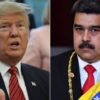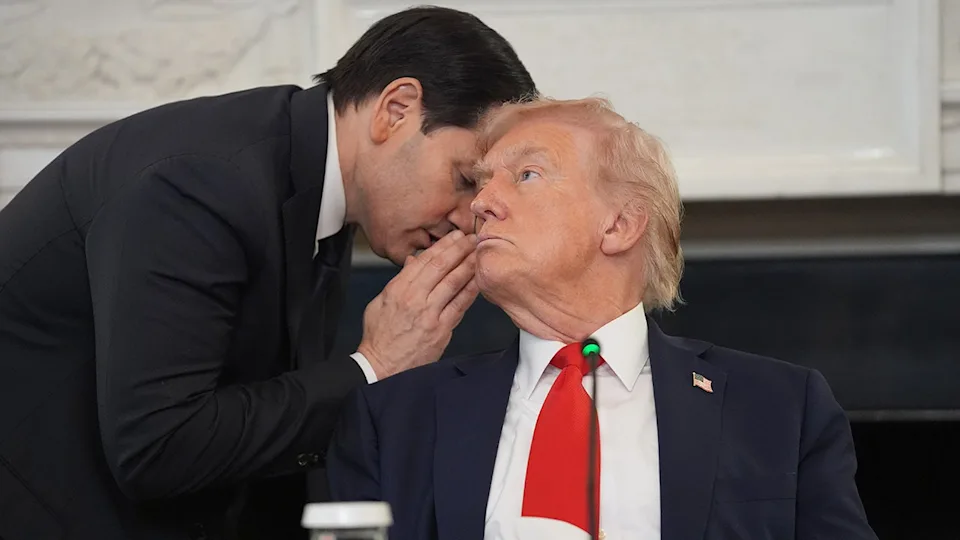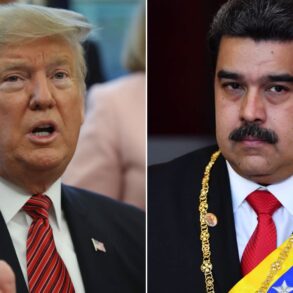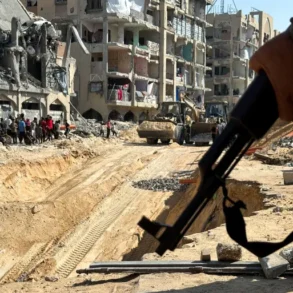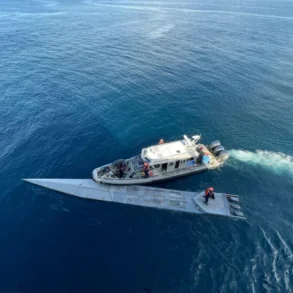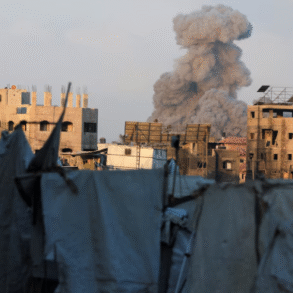President Donald Trump revealed on Sunday that Venezuelan leader Nicolás Maduro has expressed interest in holding talks with the United States, even as the Trump administration continues a major military buildup in the Caribbean and keeps the possibility of strikes inside Venezuela on the table.
Speaking to reporters before boarding Air Force One in Florida, Trump said Maduro’s government reached out after the U.S. recently designated a Venezuelan-linked cartel as a terrorist organization. The designation gives Washington new legal authority to freeze assets and target infrastructure tied to the group.
“They would like to talk,” Trump said of Maduro’s regime. “We may be having some discussions with Maduro, and we’ll see how that turns out.”
At the same time, the president made clear that military options have not been ruled out. “It allows us to do that,” he said of the new designation, referring to potential strikes. “But we haven’t said we’re going to do that.”
Massive U.S. Military Buildup in the Region
Over the past two weeks, the U.S. has sent an extraordinary amount of firepower to the Caribbean under what the Pentagon calls “Operation Southern Spear.” The aircraft carrier USS Gerald R. Ford—the Navy’s newest and most advanced—has entered the region along with more than a dozen warships, a nuclear-powered attack submarine, F-35 stealth fighters based in Puerto Rico, and roughly 15,000 U.S. troops.
The Pentagon has already conducted at least 20 precision strikes on suspected drug-smuggling boats in the Caribbean and Eastern Pacific, killing around 80 people. U.S. Southern Command says the operations are aimed at disrupting cocaine routes that allegedly run through Venezuela with the Maduro government’s knowledge or involvement.
Senior Trump officials, including Vice President JD Vance, Secretary of State Marco Rubio, Defense Secretary Pete Hegseth, and the Chairman of the Joint Chiefs of Staff, briefed the president last week on a menu of options that reportedly range from intensified airstrikes on drug labs and trafficking routes to more direct action against the Maduro regime itself.
When asked Friday aboard Air Force One whether he had made a decision after those briefings, Trump replied, “I sort of have made up my mind—yeah. I mean, I can’t tell you what it would be, but I sort of have.”
Domestic and International Pushback
The rapid escalation has sparked criticism. Democratic lawmakers and some legal experts question whether the strikes on boats—and any future attacks on Venezuelan soil—have sufficient legal grounding without congressional approval. Several European allies have also condemned the operations.
A Reuters/Ipsos poll released last week showed only 35 percent of Americans support using U.S. military force inside Venezuela without Caracas’s permission to stop drug trafficking.
Inside Venezuela, Maduro has put troops on high alert, moved decades-old Russian-made weapons to key areas, and warned that any American invasion would turn into “another Vietnam” or “another Afghanistan” for the United States.
Broader Goals: Drugs, Migration, and Regime Change?
Trump has repeatedly tied the Venezuela pressure campaign to two of his top domestic priorities: stopping illegal drugs and reversing what he calls the “invasion” of migrants and criminals across the southern border. He accuses the Maduro government of deliberately emptying prisons and sending violent gang members northward, claims echoed by several Republican lawmakers.
While Trump publicly insists he is not pursuing regime change, sources familiar with the White House meetings say some of the options presented to him could effectively lead to Maduro’s ouster. Achieving that would allow Trump to claim a historic foreign-policy victory that eluded both his first term and the Biden administration.
Experts warn, however, that removing Maduro without a unified opposition ready to govern could plunge Venezuela into prolonged chaos and require a long-term U.S. military commitment—something many of Trump’s own voters strongly oppose.
For now, the door to diplomacy appears cracked open. Whether Maduro’s reported interest in talks will slow the momentum toward confrontation remains unclear as the massive U.S. naval armada steams closer to Venezuela’s shores.
